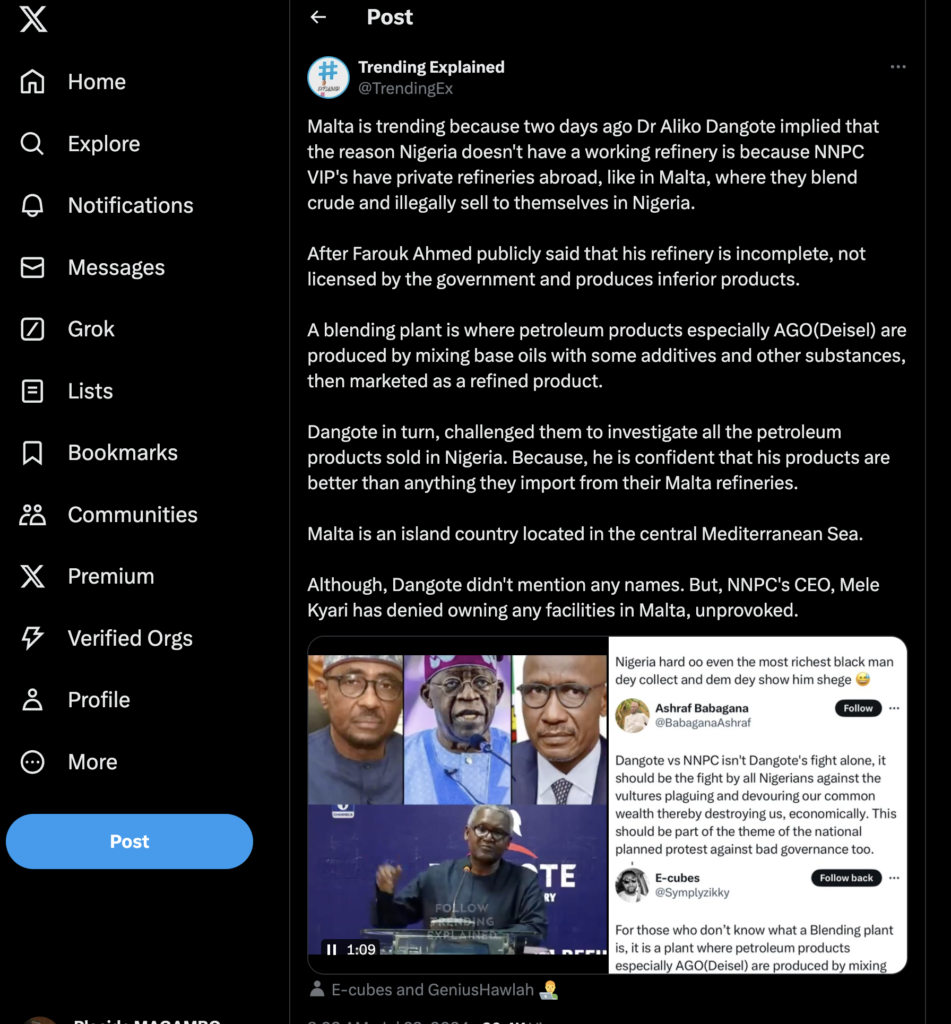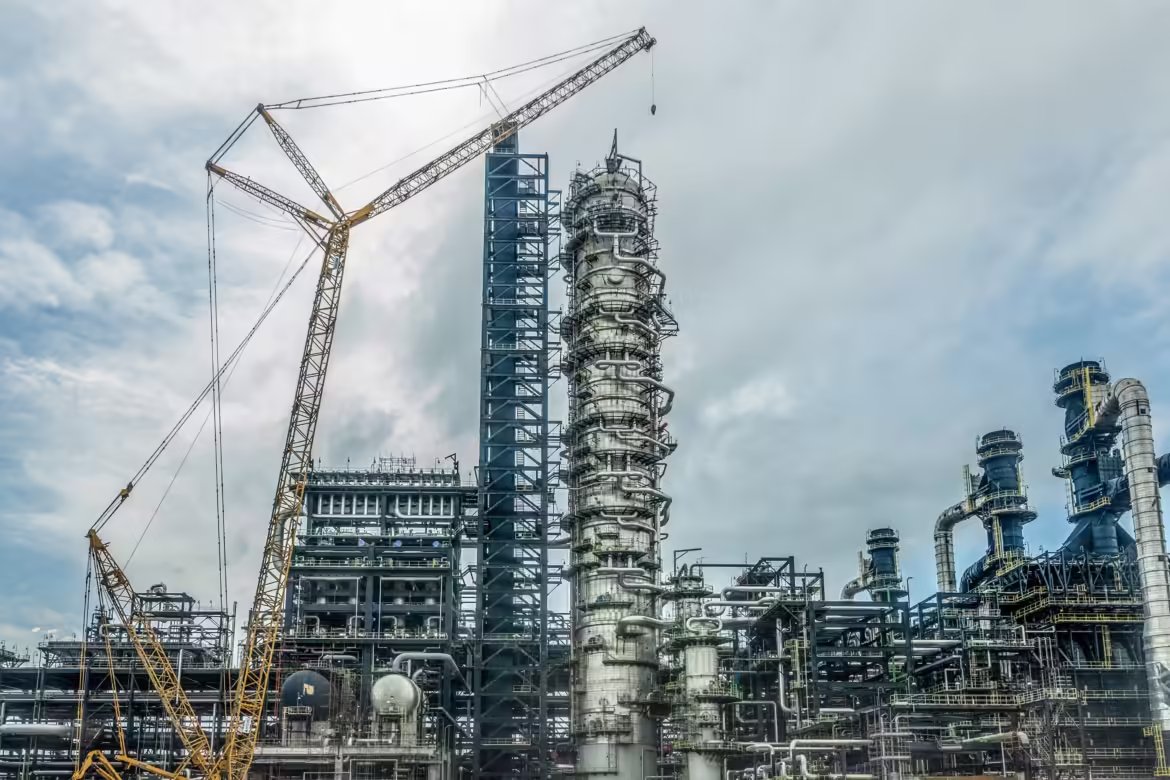In an ambitious move that highlights Nigeria’s potential for economic self-reliance, the Dangote Group embarked on constructing the world’s largest single-train refinery.
An industry regulator accused Africa’s richest man of monopolizing the market for refined products with his new $20bn plant.
Nigeria is the largest oil-producing country on the continent but still faces some of the highest fuel prices because crude oil extracted in the country is not locally processed into finished products. This investment was envisioned to revolutionize Nigeria’s oil and gas sector, addressing the country’s persistent refining deficits. However, the journey has not been without significant difficulties and criticisms, raising questions about the strategic decisions underlying this colossal project.
The 650,000 barrels per day capacity refinery is supposed to end the fuel import regime, which has persisted for decades due to the collapse of the country’s refineries operated by the Nigeria National Petroleum Company Limited. By refining crude oil domestically, the Dangote refinery aims to enhance energy security, create jobs, and spur economic growth. It is set to be the largest in Africa and among the largest in the world, yet Dangote’s effort is being met with disdain.
Nigerians were therefore shocked when the Chief Executive Officer of the Nigerian Midstream and Downstream Petroleum Regulatory Authority, Farouk Ahmed, insisted that fuel importation would continue because the government would not allow a monopoly in the sector. Ahmed also alleged that Dangote’s diesel was inferior to the imported quality. Dangote insists his diesel is the best in Nigeria, and he has since abandoned a planned steel plant announced earlier this year, saying that he wanted to avoid being dubbed a monopolist.
Mr. Ahmed claimed that the Dangote Refinery, which has been selling diesel and aviation fuel in Nigeria and exporting the products, had yet to be licensed and was only 45 percent complete. “In addition, the quality of current imports is fifty parts per million, while local refiners’ diesel product contain between 650 and 1,200 parts per million of sulfur,” said Mr. Ahmed

Africa’s wealthiest man, Dangote, in a conversation with AFP, said that by the end of the year, the Nigerian refinery intends to increase its production to reach 85 percent of its capacity, a new step to end dependency on imported fuel. “I am surprised that some people say that we would have poor quality,” Mr. Dangote told AFP. “We have a modular refinery, our product tested at eighty-seven parts per million, and soon it will be fifty parts per million.”
One significant policy issue is Nigeria’s allocation of crude oil for local refining. Unlike other oil-producing nations where refineries often operate independently of domestic crude production, Nigeria’s policy framework has not consistently supported such a model. “Not all refiners in other climes own oil mining licenses. It is Nigeria, as a policy, that ought to dedicate some percentage of its daily production to local feed,” emphasized Faith Nwadishi, an industry expert.
The Nigerian oil industry has been hampered in recent years by theft and corruption. The Nigerian Extractive Industry Transparency Initiative said about 140,000 barrels of crude oil were lost to theft everyday between 2009 and 2018.

